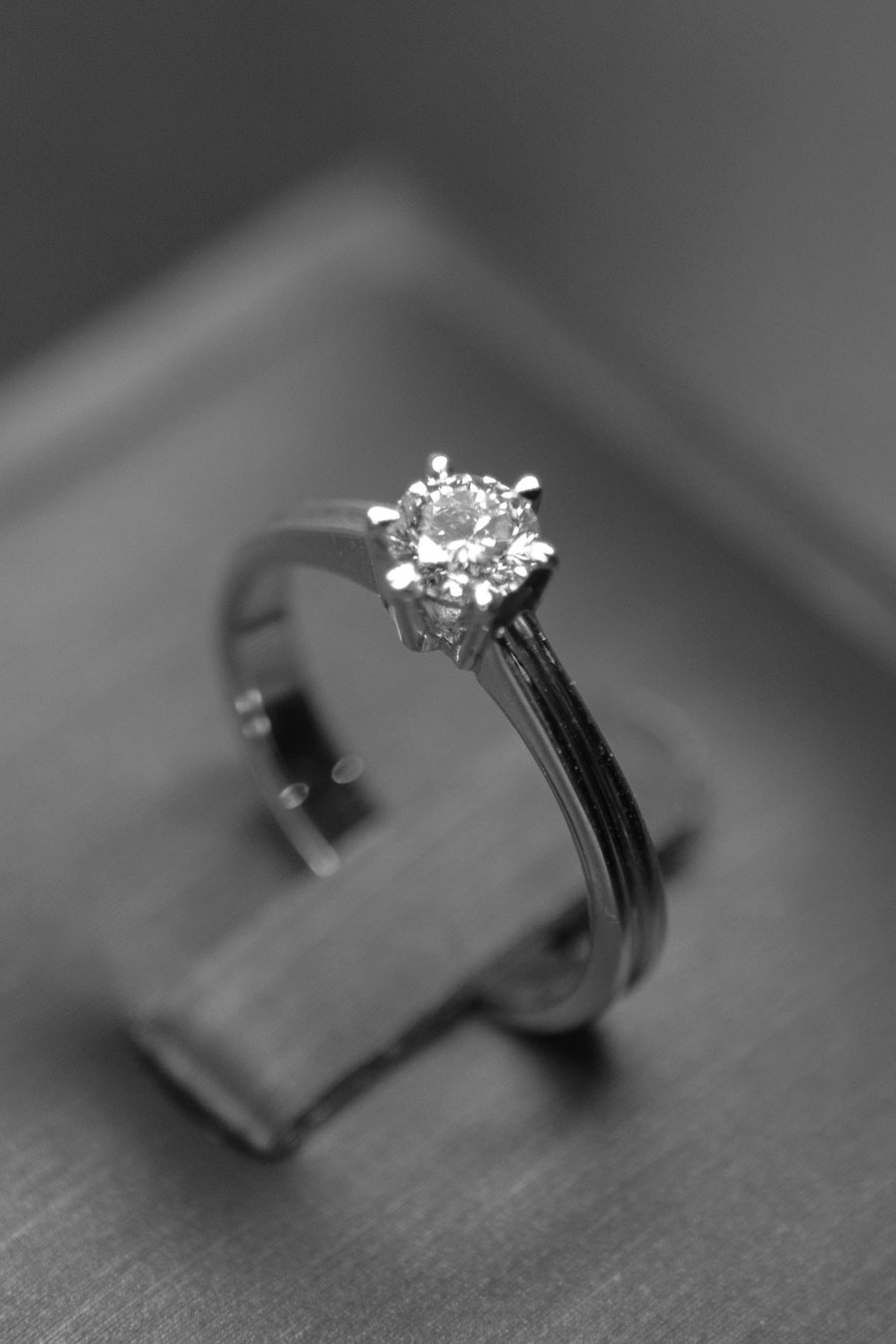The views expressed in our content reflect individual perspectives and do not represent the authoritative views of the Baha'i Faith.
A friend of mine came to me a few years ago with a moral dilemma, a question that really plagued his conscience. About to propose to his girlfriend, he just didn’t have the money for the diamond engagement ring he knew she wanted. He asked “What if I got her a cubic zirconium—one of those “faux” diamonds, instead?”
 “OK,” I said, “essentially you’re asking for my permission to lie to the woman you love? That won’t be happening.”
“OK,” I said, “essentially you’re asking for my permission to lie to the woman you love? That won’t be happening.”
“Oh, man,” he said, “Harsh. Why’d you have to put it that way? She’d probably never know the difference. They say some jewelers can’t even tell.”
“But you’d always know,” I said.
“Arggh,” he moaned. “You’re right, but I just don’t have the cash. Diamonds are expensive!”
“Here’s what I’d really suggest,” I told him. “Go to her and have a frank, up-front conversation about money and your current lack of it. That’s the best thing you can give her—your honesty.”
“What if she won’t marry me then?”
“If she cares more about the ring than the groom, she’d be saving you a lot of grief. Better to know that now than later.”
We always value the real and the authentic in life. No one really wants “faux” anything—especially feelings and beliefs. We want our deepest inner feelings and beliefs to conform to reality, to genuine, to have the authenticity of a true diamond:
Were it not for tests, genuine gold could not be distinguished from the counterfeit. Were it not for tests, the courageous could not be known from the coward. Were it not for tests, the people of faithfulness could not be known from those of selfishness. Were it not for tests, the intellects and faculties of the scholars in the great colleges would not be developed. Were it not for tests, the sparkling gems could not be known from worthless pebbles. – Abdu’l-Baha, Star of the West, Volume 5, p. 239.
In life, those spiritual tests that distinguish the genuine from the counterfeit often come during moral dilemmas like my friend’s.
So if you’re asking yourself a tough question, if you have a dilemma, if you’re in a quandary, look at it as an opportunity to make a noble moral choice. Try to see it as a test of your soul, just as an assayer would test the gold for its purity.
To his credit, instead of basing his proposal and his promise to his intended on a lie; my friend ultimately did decide to tell her the truth. After that conversation, she pondered his proposal for a few months, keeping him in suspense, and then ultimately decided not to marry him. He stayed mad at me for a while, but that passed after he met and married the love of his life, a lively, happy woman who has little use for shiny objects.
So how do we recognize and deal with the tests in life, the ones that help us distinguish between what’s real and what’s not? The Baha’i teachings offer a suggestion:
O Son of Being! Busy not thyself with this world, for with fire We test the gold, and with gold We test Our servants. – Baha’u’llah, The Hidden Words, p. 16.
“Busy not thyself with this world,” Baha’u’llah advises, always guiding us away from the material and toward the spiritual. When a moral test happens to you, in other words, choose the path that leads you in the direction of your inner spirit, not your outer desires:
…the glory, happiness, honour and peace of man do not consist in personal wealth but on the contrary in sublimity of soul, nobility of resolution, extension of education and in the solution of the problem of life. … “Verily in the souls of man lieth their only glory.”
There is a great difference between an authentic man and an imitator of one. The former is David himself, the latter is merely the tone of his voice. Knowledge and wisdom, purity and faithfulness and freedom of soul have not been and are not judged by outward appearances and dress. – Abdu’l-Baha, Star of the West, Volume 4, pp. 181-182.
Next: The Basis of All Ignorance—and How to Fight It
















Comments
Sign in or create an account
Continue with Googleor